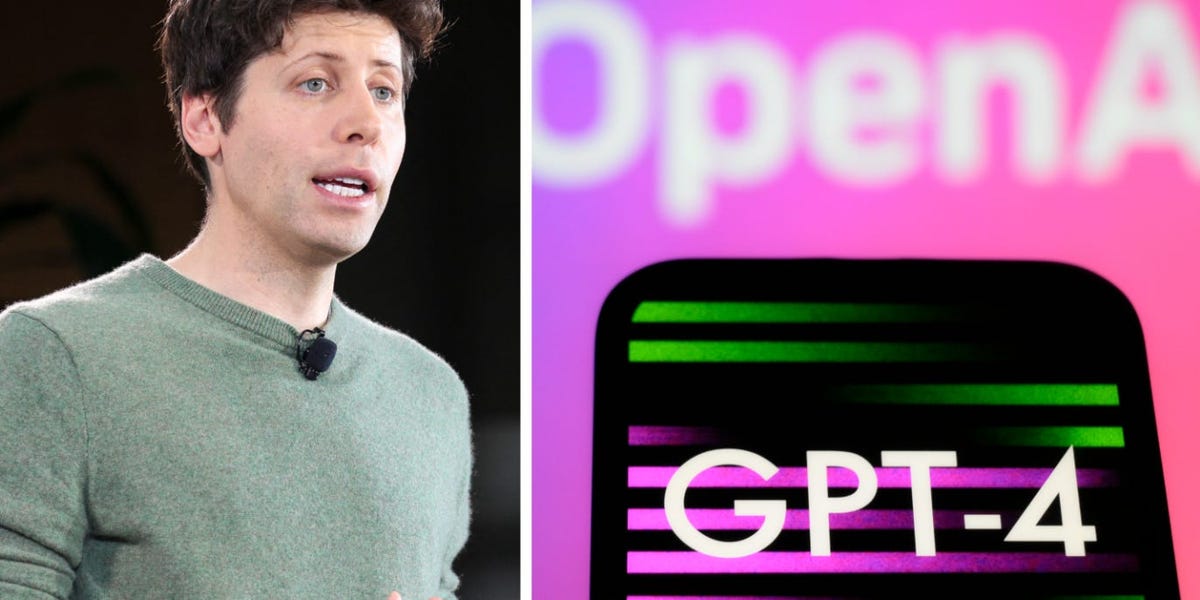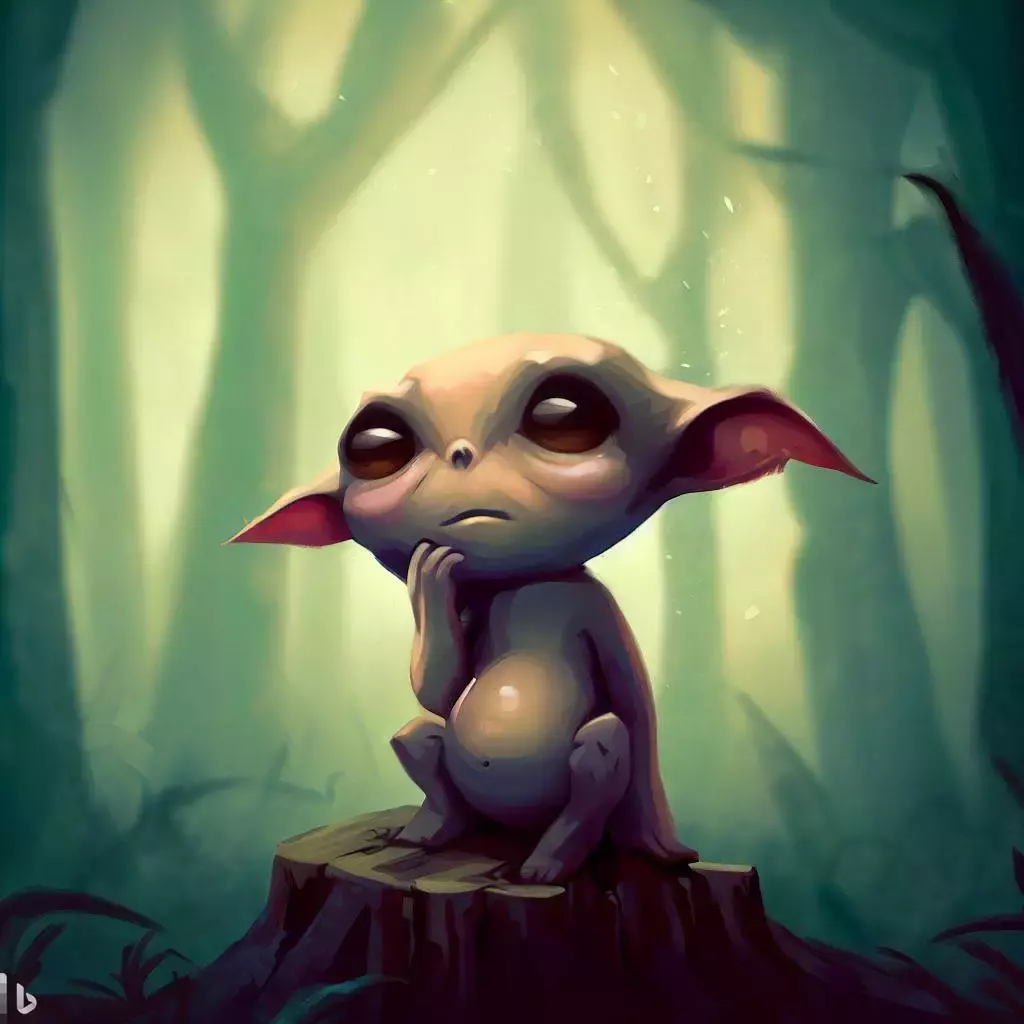Two authors sued OpenAI, accusing the company of violating copyright law. They say OpenAI used their work to train ChatGPT without their consent.
Can’t reply directly to @OldGreyTroll@kbin.social because of that “language” bug, but:
The problem is that they then sell the notes in that database for giant piles of cash. Props to you if you’re profiting off your research the way OpenAI can profit off its model.
But yes, the lack of meat is an issue. If I read that article right, it’s not the one being contested here though. (IANAL and this is the only article I’ve read on this particular suit, so I may be wrong).
@owf@kbin.social can’t reply directly to you either, same language bug between lemmy and kbin.
That’s a great way to put it.
Frankly idc if it’s “technically legal,” it’s fucking slimy and desperately short-term. The aforementioned chuckleheads will doom our collective creativity for their own immediate gain if they’re not stopped.
Was also going to reply to them!
"Well if you do that you source and reference. AIs do not do that, by design can’t.
So it’s more like you summarized a bunch of books. Pass it of as your own research. Then publish and sell that.
I’m pretty sure the authors of the books you used would be pissed."
Again cannot reply to kbin users.
“I don’t have a problem with the summarized part ^^ What is not present for a AI is that it cannot credit or reference. And that is makes up credits and references if asked to do so.” @bioemerl@kbin.social
Good point, attribution is a non-trivial part of it.
If I read a book to inform myself, put my notes in a database, and then write articles, it is called “research”. If I write a computer program to read a book to put the notes in my database, it is called “copyright infringement”. Is the problem that there just isn’t a meatware component? Or is it that the OpenAI computer isn’t going a good enough job of following the “three references” rule to avoid plagiarism?
Yeah. There are valid copyright claims because there are times that chat GPT will reproduce stuff like code line for line over 10 20 or 30 lines which is really obviously a violation of copyright.
However, just pulling in a story from context and then summarizing it? That’s not a copyright violation that’s a book report.
ChatGPT got entire books memorised. You can and (or could at least when I tried a few weeks back) make it print entire pages of for example Harry Potter.
Not really, though it’s hard to know what exactly is or is not encoded in the network. It likely has more salient and highly referenced content, since those aspects would come up in it’s training set more often. But entire works is basically impossible just because of the sheer ratio between the size of the training data and the size of the resulting model. Not to mention that GPT’s mode of operation mostly discourages long-form wrote memorization. It’s a statistical model, after all, and the enemy of “objective” state.
Furthermore, GPT isn’t coherent enough for long-form content. With it’s small context window, it just has trouble remembering big things like books. And since it doesn’t have access to any “senses” but text broken into words, concepts like pages or “how many” give it issues.
None of the leaked prompts really mention “don’t reveal copyrighted information” either, so it seems the creators really aren’t concerned — which you think they would be if it did have this tendency. It’s more likely to make up entire pieces of content from the summaries it does remember.
Have your tried instructing ChatGPT?
I’ve tried:
“Act as an e book reader. Start with the first page of Harry Potter and the Philosopher’s Stone”
The first pages checked out at least. I just tried again, but the prompts are returned extremely slow at the moment so I can’t check it again right now. It appears to stop after the heading, that definitely wasn’t the case before, I was able to browse pages.
It may be a statistical model, but ultimately nothing prevents that model from overfitting, i.e. memoizing its training data.
Wait… isn’t that the correct response though? I mean if i ask an ai to produce something copyright infringing it should, for example reproducing Harry potter. The issue is when is asked to produce something new, (e.g. a story about wizards living secretly in the modern world) does it infringe on copyright without telling you? This is certainly a harder question to answer.
I think they’re seeing this as a traditional copyright infringement issue, i.e. they don’t want anyone to be able to make copies of their work intentionally either.
The only question I have to content creators of any kind who are worried about AI…do you go after every human who consumed your content when they create anything remotely connected to your work?
I feel like we have a bias towards humans, that unless you’re actively trying to steal someone’s idea or concepts we ignore the fact that your content is distilled into some neurons in their brain and a part of what they create from that point forward. Would someone with an eidetic memory be forbidden from consuming your work as they could internally reference your material when creating their own?
The problem with AI as it currently stands is that it has no actual comprehension of the prompt, or ability to make leaps of logic, nor does it have the ability to extend and build upon existing work to legitimately transform it, except by using other works already fed into its model. All it can do is blend a bunch of shit together to make something that meets a set of criteria. There’s little actual fundamental difference between what ChatGPT does and what a procedurally generated game like most roguelikes do–the only real difference is that ChatGPT uses a prompt while a roguelike uses a RNG seed. In both cases, though, the resulting product is limited solely to the assets available to it, and if I made a roguelike that used assets ripped straight from Mario, Zelda, Mass Effect, Crash Bandicoot, Resident Evil, and Undertale, I’d be slapped with a cease and desist fast enough to make my head spin.
The fact that OpenAI stole content from everybody in order to make its model doesn’t make it less infringing.
The fact that OpenAI stole content from everybody in order to make its model doesn’t make it less infringing.
Totally in agreement with you here. They did something wrong and should have to deal with that.
But my question is more about…
The problem with AI as it currently stands is that it has no actual comprehension of the prompt, or ability to make leaps of logic, nor does it have the ability to extend and build upon existing work to legitimately transform it, except by using other works already fed into its model
Is comprehension necessary for breaking copyright infringement? Is it really about a creator being able to be logical or to extend concepts?
I think we have a definition problem with exactly what the issue is. This may be a little too philosophical but what part of you isn’t processing your historical experiences and generating derivative works? When I saw “dog” the thing that pops into your head is an amalgamation of your past experiences and visuals of dogs. Is the only difference between you and a computer the fact that you had experiences with non created works while the AI is explicitly fed created content?
AI could be created with a bit of randomness added in to make what it generates “creative” instead of derivative but I’m wondering what level of pure noise needs to be added to be considered created by AI? Can any of us truly create something that isn’t in some part derivative?
There’s little actual fundamental difference between what ChatGPT does and what a procedurally generated game like most roguelikes do
Agreed. I think at this point we are in a strange place because most people think ChatGPT is a far bigger leap in technology than it truly is. It’s biggest achievement was being able to process synthesized data fast enough to make it feel conversational.
What worries me is that we will set laws and legal precedent based on a fundamental misunderstanding of what the technology does. I fear that had all the sample data been acquired legally people would still have the same argument think their creations exist inside the AI in some full context when it’s really just synthesized down to what is necessary to answer the question posed “what’s the statically most likely next word of this sentence?”
Is comprehension necessary for breaking copyright infringement? Is it really about a creator being able to be logical or to extend concepts?
I think we have a definition problem with exactly what the issue is. This may be a little too philosophical but what part of you isn’t processing your historical experiences and generating derivative works? When I saw “dog” the thing that pops into your head is an amalgamation of your past experiences and visuals of dogs. Is the only difference between you and a computer the fact that you had experiences with non created works while the AI is explicitly fed created content?
That’s part of it, yes, but nowhere near the whole issue.
I think someone else summarized my issue with AI elsewhere in this thread–AI as it currently stands is fundamentally plagiaristic, because it cannot be anything more than the average of its inputs, and cannot be greater than the sum of its inputs. If you ask ChatGPT to summarize the plot of The Matrix and write a brief analysis of the themes and its opinions, ChatGPT doesn’t watch the movie, do its own analysis, and give you its own summary; instead, it will pull up the part of the database it was fed into by its learning model that relates to “The Matrix,” “movie summaries,” “movie analysis,” find what parts of its training dataset matches up to the prompt–likely an article written by Roger Ebert, maybe some scholarly articles, maybe some metacritic reviews–and spit out a response that combines those parts together into something that sounds relatively coherent.
Another issue, in my opinion, is that ChatGPT can’t take general concepts and extend them further. To go back to the movie summary example, if you asked a regular layperson human to analyze the themes in The Matrix, they would likely focus on the cool gun battles and neat special effects. If you had that same layperson attend a four-year college and receive a bachelor’s in media studies, then asked them to do the exact same analysis of The Matrix, their answer would be drastically different, even if their entire degree did not discuss The Matrix even once. This is because that layperson is (or at least should be) capable of taking generalized concepts and applying them to specific scenarios–in other words, a layperson can take the media analysis concepts they learned while earning that four-year degree, and apply them to a specific thing, even if those concepts weren’t explicitly applied to that thing. AI, as it currently stands, is incapable of this. As another example, let’s say a brand-new computing language came out tomorrow that was entirely unrelated to any currently existing computing languages. AI would be nigh-useless at analyzing and helping produce new code for that language–even if it were dead simple to use and understand–until enough humans published code samples that could be fed into the AI’s training model.








